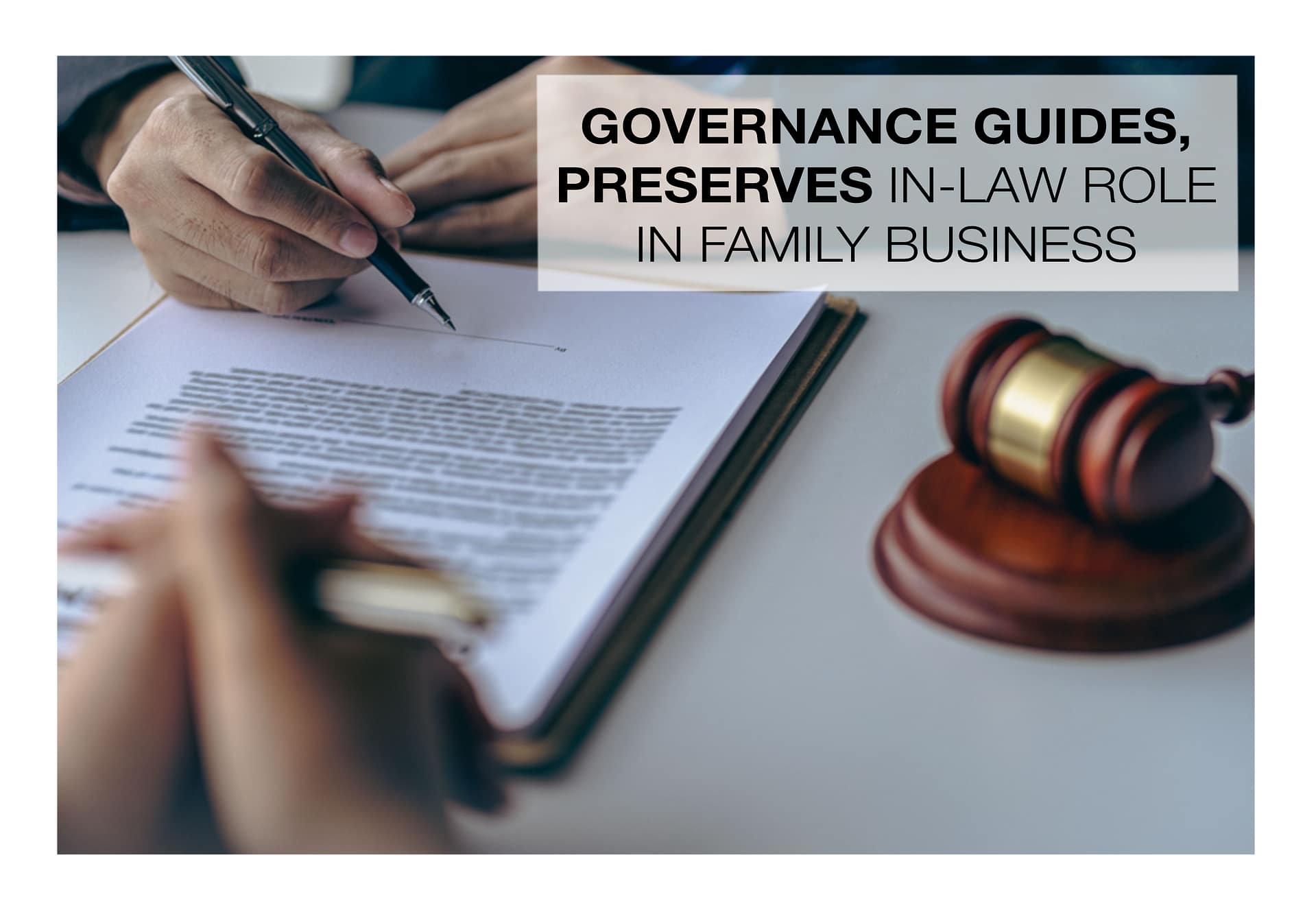We recently wrote about how or whether families should automatically find a role for their children’s spouses in the family business or family office. The answer, along with urging caution, was to set rules in place to guide when in-laws might be considered for a role in the family’s future.
As noted, we’ve previously written about when the business or family should come first, or how distributions to the family might be handled in the event of a business sale. We wrote of such families as the firearms maker Baretta, which has been guided by over 15 generations of family, and the Cargills, which early on was guided by son-in-law John H. MacMillan Sr., who ensured the continuity of the family business.
Whilst the succession plans of these families might not be public knowledge, governance is an important process to ensure the family’s goals are codified for future generations to follow.
How can families craft these rules to ensure all family members, including the in-laws, find an appropriate place in the family business or organisation – or are reasonably excluded from such a role? Family governance documents should reflect the family’s vision and set a foundation for future decisions, especially as they give clarity to those that may otherwise feel frustration when they are denied a role.
As we wrote in 2022, any consideration of governance begins with a conversation. The family must weigh the attributes that all family members must possess in order to be considered for such a role.
Amongst the attributes/prerequisites to be weighed…
- As with any family member hoping for a position in the business, this same requirement extends to in-laws. The expectation should be that they hold a bachelors, masters, MBA or other advanced degrees.
- Track record. As is the case with many future leaders, heads of family businesses often want their offspring to have work experience outside the family business, before being considered for a role within its ranks. The same holds true for in-laws.
- It’s not sufficient to have held a position in another company. Governance should outline how many years they work outside the family business, where the minimum starts at four to six years; the type of firm or industry; and whether they managed money, portfolios or people.
- Assuming the individual meets the above qualifications, governance would give guidelines around the role they would enter the company as, from a manager to executive, depending on their prior experience and how that translates to the family enterprise.
I have often seen governance preclude the in-laws from receiving voting shares, at least early on. In all likelihood, the child would hold shares – and the couple’s power within the organisation.
Therein exists a potential issue. Would the in-law expect an outsized role, especially given their spouse’s familial relationship? Will they assume some level of “power sharing” by virtue of the couple’s shared assets, which would include the family’s joint assets? And do they have an implied ownership due to the influence one spuse has over the other?
Finally, governance documents should establish how significant conflicts would be resolved. This could include arbitration, mediation or other settings and in what venue or jurisdiction.
Ideally, governance documents remove ambiguity as to how such positions, roles, ascension, conflicts and other issues might be handled.
Most importantly for some families, the governing documents become the indisputable guide around any family member taking a position in the family business. If the family member or in-law doesn’t have the prerequisite degree or outside job experience, the decision is predetermined. If they would like the family to invest in an enterprise and the family fears conflict arising from failure, the document offers direction, reducing risks of conflict.
If your family business or office has children – with or without spouses – who are hoping to take a role in the organisation, governance is one fall-back to determine their involvement. This is a key buffer to avoid conflict and have a clear path forward.
Another buffer is the outside adviser who helped draft the documents. I have played that role with families, being the “mediator” who can clarify the interpretation, when the family doesn’t want to face the fall out of a tough decision. If you need to discuss governance, let’s talk. Discover how governance can guide your organisation and preserve or prevent an in-law’s role.

Leave A Comment